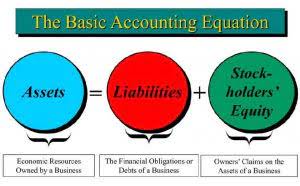
The question isn’t whether your business will adopt programmable payments, it’s whether you’ll be an early adopter or late follower. While traditional crypto payment processors compete on settlement speed and fees, RebelFi builds fundamentally different programmable payment infrastructure automate b2b payments that makes every transaction intelligent. The pending GENIUS Act allows banks to issue and custody stablecoins, providing regulatory clarity enterprises require.
Ultimate Guide to Automate Your B2B Payments
Work with a payment provider that offers onboarding support and can help automate your existing payment processes. It can also ultimately reduce human error, in turn helping to minimize costly mistakes while aiding compliance with tax and regulatory requirements. For businesses aiming to optimize their financial workflows, investing in automated payment reconciliation is no longer an option, but a necessity. Increased transaction volumes, multiple payment sources, and the adoption of digital and B2B payments all add layers of difficulty.
- Understanding your baseline performance and pain points helps you evaluate solutions effectively and measure improvement after implementation.
- Paystand’s AI payment processing platform automates reconciliation, improves accuracy, and gives you real-time visibility—so your team can focus on strategy instead of spreadsheets.
- A seamless, automated system drives financial agility, reduces costs, and positions your company for long-term growth.
- As businesses scale and payment complexity grows, relying on outdated methods can lead to inefficiencies that slow decision-making and hinder cash flow management.
- This should include testing data transfers, approval workflows, and payment processing.
- B2B (Business-to-Business) payment platforms are essential tools for companies that facilitate financial transactions between businesses.
Types of B2B payments

Choosing the right reconciliation software for enterprise can reduce risk, free up finance teams, https://www.bookstime.com/ and improve reporting accuracy across the board. Seamless integration can be transformational, allowing businesses to move beyond manual payment tracking. Features as simple as embedded payment links on invoices enable customers to pay instantly, reducing time to cash. And businesses with recurring revenue models can leverage scheduled and recurring payments, eliminating the need for manual billing.
Tips to Optimise your AP/AR Strategy for a Better Cash Flow

Real-time integration allows for instant updates and provides a comprehensive view of your financial data. Utilize APIs and standard connectors to maintain the integrity of your data and streamline workflows. Streamlining payment processes can reduce your days sales outstanding (DSO), leading to faster payments and improved cash flow.
- Maintaining a balance between extending credit and managing cash flow is crucial for sustaining healthy business operations and relationships.
- Companies should consider several factors when evaluating payment processing solutions.
- The supplier marks the invoice as paid, and the buyer logs the payment as an expense.
- The platform should be customizable and scalable to adapt to an organization’s evolving needs and preferences.
- Time saved on manual processing, reduction in payment errors, days sales outstanding improvement, and early payment discount capture all contribute to ROI.
- By implementing these best practices, businesses can streamline financial operations, reduce manual workloads, and improve the accuracy of their financial records.
- However, without submitting additional data (like Level 2 or Level 3 data), they might miss out on discounts they could otherwise receive.
Automated matching capabilities
API-first platforms offer more flexibility for custom integrations and future technology additions. Consider whether you need real-time data synchronization or if batch processing meets your Supply chain efficiency requirements adequately. Veem simplifies cross-border B2B payments through a user-friendly platform that doesn’t require extensive setup or banking relationships. Their approach makes international payments accessible to smaller businesses without treasury departments. There are serious consequences, from financial losses to legal action and reputational damage. By securing your B2B payment processing, you’re keeping confidential data safe and showing clients and suppliers that you’re reliable and professional.
- Overall, automating routine payment processes will free up valuable time and resources in your business.
- Nomentia offers a comprehensive suite of cash and treasury management solutions, including payment reconciliation.
- Businesses using automation can pay people on time, reduce time spent correcting manual errors, and make better informed financial decisions.
- Automation of business-to-business payments uses technology to manage transactions without requiring human intervention.
- Many businesses are pressured to modernize their systems and adopt value-added technologies such as AI and B2B payment gateways to stay competitive.
- Find out how AI-powered automation is reshaping reconciliation with real-time accuracy and faster close cycles.
The State of AP Report revealed that86% of finance leaders believe vendor relationships have grown more important over the past year. Automating B2B payments helps keep payments accurate and on time, which in turn fosters stronger relationships with vendors. Despite the rise in electronic payments, checks remain a crucial part of B2B payment trends due to their familiarity and wide vendor acceptance.

Global payments platforms enhance efficiency and compliance for international transactions, offering advanced capabilities such as supplier portals and regulatory screening. With the global cross-border payments market valued at more than $190 trillion, international transactions are set to become even more integral to the B2B landscape. In fact, manual reconciliation can increase processing expenses by as much as 20%. With automated reconciliation systems, businesses can significantly reduce these costs while improving compliance with regulatory standards. Managing B2B payments effectively is essential for ensuring smooth cash flow, maintaining healthy vendor relationships, and improving financial performance.
Why B2B payment automation is a must-have for AP teams
Understanding the nuances of B2B payment automation and how it supports efficient accounts payable (AP) operations can help youmake more informed investments in automation tools for your organization. This method significantly reduces administrative costs and processing times, fostering operational efficiency. As the landscape of B2B payments continues to evolve, staying informed about new trends, technologies, and solutions will be crucial for maintaining a competitive edge. With the right tools, strategies, and experts in place, businesses can ensure their payment processes are streamlined, secure, and cost-effective—ultimately driving long-term success.
- Most cases involve generating an invoice to request payment for the rendered products or services.
- Traditional merchant payment processing approaches no longer meet the demands of modern business transactions.
- Encompassing various types of electronic payments, including wire transfers and ACH payments, EFTs offer a secure and efficient means to move funds between accounts electronically.
- With extensive experience across 40+ industries and significant expansion into Europe, we understand the complex challenges facing modern finance teams.
- By ensuring timely, accurate payments, companies demonstrate the reliability and professionalism required for long-term business relationships.
- Manual payment reconciliation is time-consuming, error-prone, and inefficient, especially with high transaction volumes.
Best Practices for an Effective Payment Reconciliation Process
Learn how to optimise your business cash flow to withstand the COVID-19 induced crisis. Book a demo with Kolleno and see how leading enterprises are transforming their finance operations with intelligent automation. Whether you’re looking for a highly specialized reconciliation tool or a modern all-in-one platform like Kolleno, investing in automation pays for itself many times over. When you are managing finance at the enterprise level, there’s zero room for guesswork.

There are also stringent regulatory requirements and cost Liability Accounts implications with adoption of this technology. Virtual cards offer a secure and efficient payment method that’s similar to a traditional credit card. The key difference is that virtual cards use randomly generated tokenized numbers, allowing businesses to make payments without exposing their actual payment credentials.